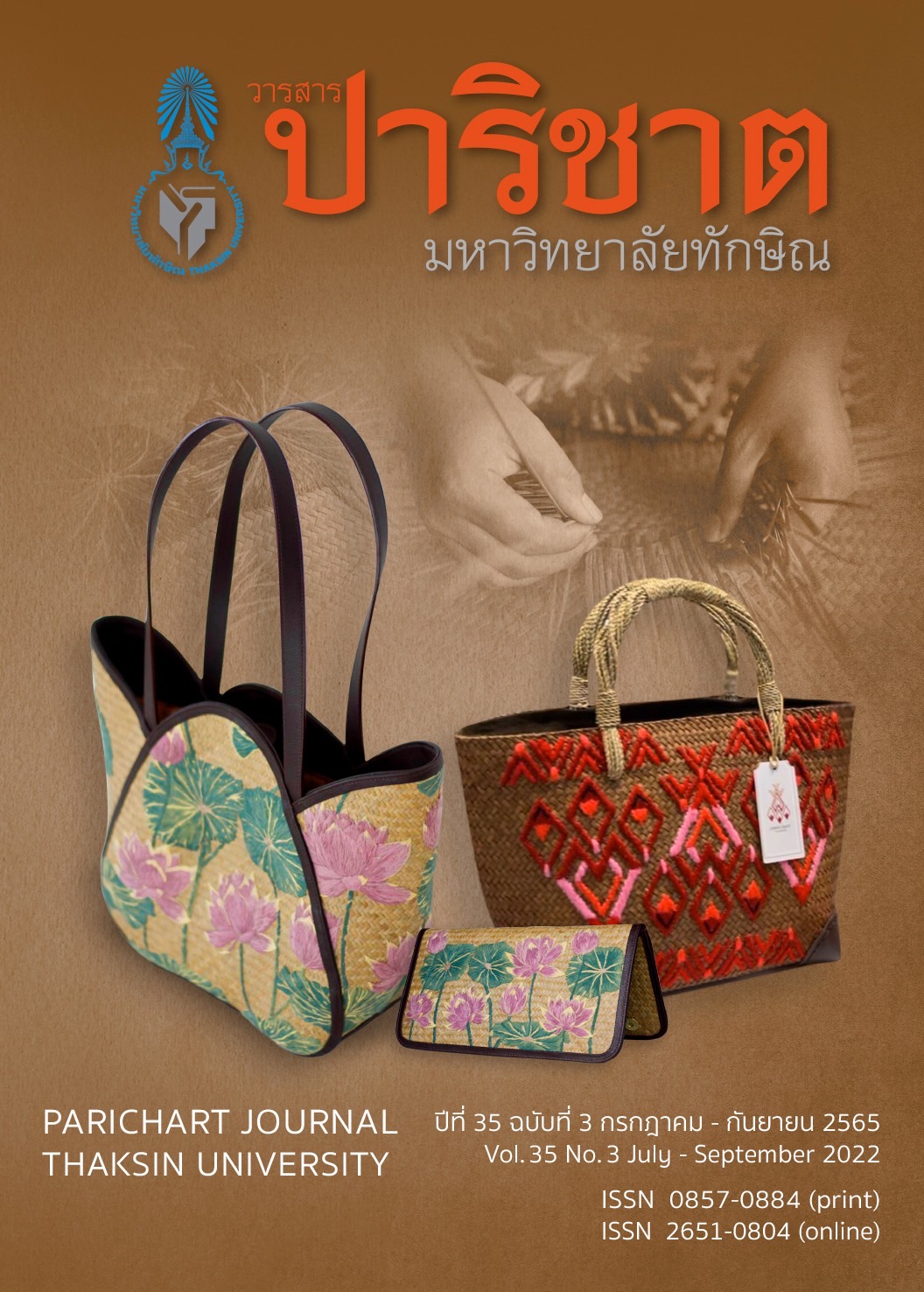Baby, Don't Leave Me : Life, Blood, and Struggle of Disabled in Literature of Zheng Fong Xi
Main Article Content
Abstract
This article aims to study vulnerability: the pursuit of social space and the meaning of the disabled in “Baby, Don't Leave Me”. The study found that the disabled in this literature consists of two types of vulnerability: 1) physical vulnerability and 2) psychological vulnerability, which causes the disabled struggle to find social space: 1) seeking family space, 2) seeking educational space, and 3) seeking space for work in which the disabled have created 3 meanings for themselves: 1) the disabled are fighters who do not surrender to his destiny and obstacles, 2) the disabled are somebody with comparable or possibly superior performance than common people, and 3) the disabled are general human beings who can live with others. These literary characters present a visual representation of the struggle to overcome barriers of the disabled. Although all of the disabled cannot choose to be born, but they can choose to live the life they want.
Article Details

This work is licensed under a Creative Commons Attribution-NonCommercial-NoDerivatives 4.0 International License.
References
Empowerment of Persons with Disabilities Act, B.E. 2550. (2007). Government Gazette 124, Part 61 A. www.ratchakitcha.soc.go.th (In Thai)
Committee on the Study of Constitutional Amendment Guidelines, Secretariat of the House of Representatives. (2006). Guidelines on extra amendments to the constitution of rights, freedoms and duties of Thais. Sub-Committee on the Study of Extra Constitutional Amendment Guidelines, Faculty 1 in the Education Committee of Extra Amendment to the Constitutions, the Secretariat of the House of Representatives. (In Thai)
Institute for Population and Social Research, Mahidol University. (2017). Thai health 2017: empowering the vulnerable, create a society that is not abandoned. Institute for Population and Social Research, Mahidol University. (In Thai)
Office of the National Health Commission. (2017). Charter on the National Health System, Edition 2. B.E. 2016. E&I Create Plus. (In Thai)
Office of the Health Promotion Foundation. (n.d.). Congenital limb conditions. www.nongsuachang.go.th (In Thai)
Pichitchattana, J. (1984). Zheng Fong Xi. Baby, Don’t Leave Me. Chareonvitaya Printing Limited Partnership. (In Thai)
Niljunteuk, J. (2018). Influence of meaning in life to adapt to illness and loss of work duties of the physical organs of the disabled and their caregivers. Mixed Method Research. Dissertation Degree Thesis. Chulalongkorn University. (In Thai)
Potiwan, P. (2011). Transgender: Identity, subculture and social space. Damrong Academic Journal Faculty of Archeology, Silpakorn University, 10(1), 98-125. (In Thai)
Pattranon-Utai, S. (2021). The study of the identity and the construction of social space of Tamiya mini 4WD Thai players. Santapol College Academic Journal, 7(1), 64-71. (In Thai)


